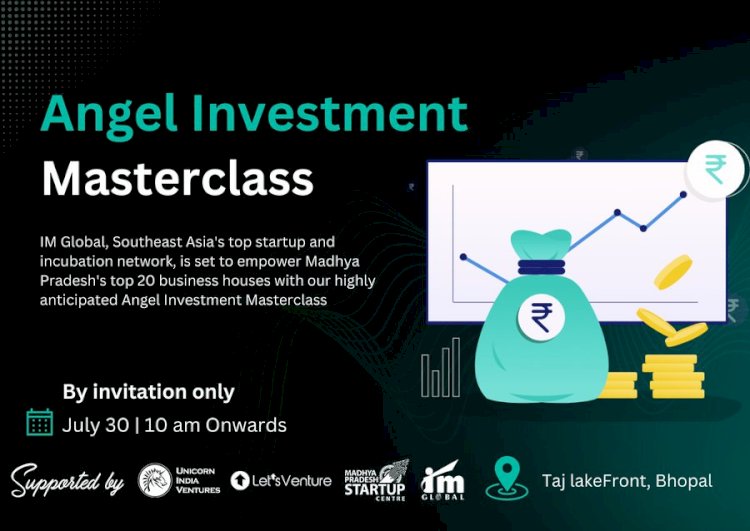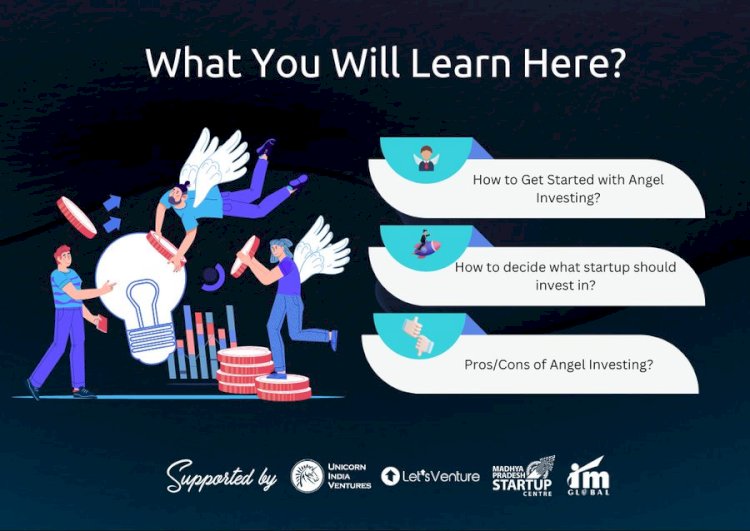Founders and Investors Unite: Best Practices for Structuring Angel Investment Deals
Attend the IM Global Fund Masterclass on Angel Investment to learn about structuring angel investment deals effectively. Led by industry experts, the masterclass covers startup valuations, convertible debt benefits and risks, revenue-sharing and royalty financing structures, risk factors, exit strategies, networking opportunities, and evaluating risk factors. Gain valuable insights, expand your network, and enhance your investment decisions.
Angel investing in startups offers an exciting opportunity to support innovative ideas and potentially earn significant returns. However, structuring investment deals in early-stage companies requires careful consideration to mitigate risks and maximize potential rewards. In this blog post, we will explore four common ways to structure angel investment deals and how attending the Masterclass on Angel Investment by IM Global Fund on July 30 at Taj Lakefront Bhopal can help deepen your understanding of these strategies.
Equity Investment: Equity investment is a popular structure wherein the angel investor acquires ownership of the startup in exchange for capital. Typically, this involves purchasing shares or convertible notes. As the company grows and achieves milestones, the investor's stake may increase in value, offering potential returns upon exit. Attending the masterclass will provide insights into assessing a startup's valuation, understanding dilution factors, and negotiating favorable equity terms.
Convertible Debt: Convertible debt is another common structure used in angel investments. It involves providing a loan to the startup, which can be converted into equity at a later stage, usually during a subsequent funding round or a predefined event. This structure offers flexibility to both parties and allows investors to secure their investments while deferring valuation negotiations. The masterclass can provide guidance on evaluating conversion terms, assessing the startup's financial health, and managing potential risks associated with convertible debt.
Revenue-Sharing Agreements: In certain cases, angel investors opt for revenue-sharing agreements with startups. Under this structure, the investor receives a percentage of the startup's revenue until a predetermined return on investment (ROI) is achieved. This approach allows investors to participate in the company's success while potentially minimizing downside risks. Attending the masterclass will help you understand the intricacies of revenue-sharing agreements, including setting realistic revenue targets, establishing appropriate payment terms, and structuring exit options.
iSAFE Notes: iSAFE (India Simple Agreement for Future Equity) is a hybrid instrument that combines the features of both equity and debt financing, making it a popular financing option. This structure was developed by Silicon Valley-based accelerator Y-Combinator as SAFE and is now adapted to India. Here, the investor becomes an iSafe Notes holder after making cash investment to purchase shares priced at a future round. It gets automatically converted into equity shares in two different scenarios whichever happens earlier: in the event of liquidity events such as the next pricing or valuation round, dissolution, merger or acquisition or at the end of three years from the date of issue. Although it may appear similar to a convertible debt, an iSafe note is a convertible security and does not accrue interest.
Attending the IM Global Fund Masterclass on Angel Investment on July 30 at Taj Lakefront Bhopal will equip you with the knowledge and skills necessary to navigate the complexities of structuring angel investment deals effectively. Led by industry experts, the masterclass will delve into practical case studies, share real-world experiences, and provide a comprehensive understanding of the angel investment landscape.
Key takeaways from the masterclass may include:
- Assessing startup valuations and negotiating equity terms
- Understanding the benefits and risks of convertible debt
- Exploring revenue-sharing and royalty financing structures
- Evaluating risk factors and exit strategies in angel investments
- Networking opportunities with fellow investors and industry professionals
As an angel investor, understanding the various ways to structure your investment deals in startups is crucial for success. Whether you choose equity investment, convertible debt, revenue-sharing agreements, or royalty financing, each structure has its own advantages and considerations. By attending the IM Global Fund Masterclass on Angel Investment on July 30 at Taj Lakefront Bhopal, you can gain valuable insights, expand your network, and enhance your ability to make informed investment decisions. Embrace the opportunity to learn from experts and take your angel investment journey to new heights.


























